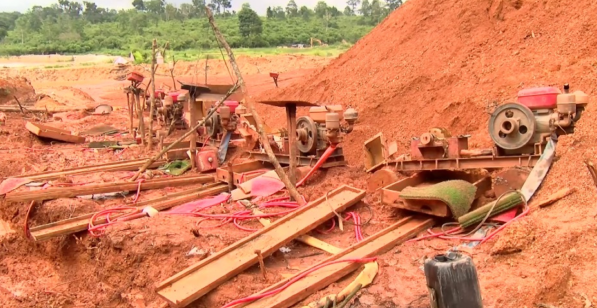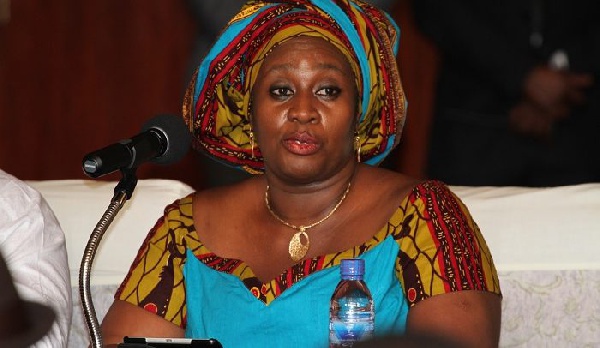CSIR, GAEC scientists advocate lasting solution to ‘galamsey’

Ghanaian scientists have proposed a national stakeholders’ dialogue to find a lasting solution to illegal small-scale mining (galamsey) in the country.
“We urge the government to convene a national dialogue that includes researchers, environmentalists, mining companies, traditional leaders, and civil society organisations to develop a sustainable solution to the illegal mining crisis.
“The sector should be regularised to lessen its impact on the environment and human safety while also utilising its potential to alleviate poverty,” a statement jointly issued by the Research Staff Association and Research Scientists Association of the Council for Scientific and Industrial Research (CSIR) and the Ghana Atomic Energy Commission (GAEC), said.
The statement said research carried out by the two institutions had shown that illegal mining had caused extensive degradation to Ghana’s natural environment, particularly affecting water bodies, forests, and agricultural lands.
“Almost all our river systems, such as the Pra, Daboase, Ankobra, and Offin, just to name a few, have been heavily polluted with toxic substances, especially mercury, cadmium, lead and other potentially toxic elements,” the two associations lamented.
This had rendered several water resources unusable for domestic purposes, affecting millions of Ghanaians who rely on them.
“Recent studies reveal that over 60 per cent of water bodies in mining areas suffer from contamination due to illegal mining activities,” the statement said.
The scientists expressed worry that large tracts of forested land had been destroyed to make way for galamsey activities, noting that this had led to the loss of biodiversity amounting to some 50,000 hectares of forest annually.
On soil degradation, the scientists noted that illegal mining operations result in the removal of the topsoil, which contained the nutrients needed for crop production.
“Also, the operation involves the use of hazardous chemicals which renders vast areas of fertile agricultural land unusable for farming.
“These actions have implications for Ghana’s food security and exacerbation of rural poverty,” the statement cautioned.
The scientists urged the Government to take urgent, decisive and sustained action to address the galamsey menace.
They called for the immediate suspension of all illegal small-scale mining activities in the country until there was support for sustainable mining practices.
“We call on the Government to immediately suspend all illegal small-scale mining activities in the country for a period not less than one year, and invest in promoting sustainable, eco-friendly mining practices by providing technical and financial support to small-scale miners,” it said.
On the restoration of degraded lands and water bodies, the statement advised the authorities to initiate a comprehensive national programme for the reclamation of lands destroyed by galamsey.
“This should include reforestation initiatives and the restoration of polluted water bodies, with priority given to communities most affected by the environmental damage.
“The Government must collaborate with research institutions like GAEC and CSIR to employ innovative technologies in land reclamation and water purification,” the scientists recommended.
Additionally, the statement called for wider collaboration between the Government, traditional authorities, and civil society organisations in the fight against illegal mining, saying chiefs and community leaders should be empowered to take active roles in preventing illegal mining in their jurisdictions.
Source: GNA





